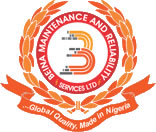ASQ Certified Reliability Engineer (ASQ - CRE)
RELIABILITY ENGINEER CERTIFICATION, CRE
A Certified Reliability Engineer is a professional who understands the principles of performance evaluation and prediction to improve product/systems safety, reliability and maintainability. This Body of Knowledge (BOK) and applied technologies include, but are not limited to, design review and control; prediction, estimation, and apportionment methodology; failure mode effects and analysis; the planning, operation and analysis of reliability testing and field failures, including mathematical modeling; understanding human factors in reliability; and the ability to develop and administer reliability information systems for failure analysis, design and performance improvement and reliability program management over the entire product life cycle.
REQUIREMENTS
Here are the experience and exam specifics for the Certified Reliability Engineer.
Work ExperieNCE
Candidates must have worked in a full-time, paid role. Paid intern, co-op or any other course work cannot be applied toward the work experience requirement. Candidates must have eight years of on-the-job experience in one or more of the areas of the Certified Reliability Engineer Body of Knowledge. A minimum of three years of this experience must be in a decision-making position. “Decision-making” is defined as the authority to define, execute, or control projects/processes and to be responsible for the outcome. This may or may not include management or supervisory positions. Candidates who were previously certified by ASQ as a quality engineer, quality auditor, software quality engineer, or quality manager, experience used to qualify for certification in these fields often applies to certification as a reliability engineer.
Education
Candidates who have completed a degree from a college, university or technical school with accreditation accepted by ASQ will have part of the eight-year experience requirement waived, as follows (only one of these waivers may be claimed):
- Diploma from a technical or trade school — one year will be waived
- Associate degree — two years waived
- Bachelor’s degree — four years waived
- Master’s or doctorate — five years waived
Degrees or diplomas from educational institutions outside the United States must be equivalent to degrees from U.S. educational institutions.
Expectations
Here are the minimum expectations of a Certified Reliability Engineer.
- Will understand strategic management aspects of reliability engineering, its relationship to safety and quality, its impact on warranty programs and customer satisfaction, the consequences of failure, and the potential for liability. Will understand requirements planning for reliability programs and how various engineering and operational systems must be integrated to achieve overall program goals and alignment with organizational goals. Will use risk analysis tools and techniques to evaluate product and system safety issues. Will abide by the ASQ Code of Ethics.
- Will use probability and statistical tools to analyze product lifecycle, conduct hypothesis testing, understand appropriate statistical models, tolerance and confidence intervals, sample size determination, and regression analysis.
- Will develop product and process reliability requirements using reliability and design techniques such as failure mode effects analysis (FMEA), fault tolerance, optimization, and design of experiments (DOE). Will develop systems for material selection, derating methods, and manufacturing control.
- Will develop models to analyze and predict reliability performance using block diagrams, physics of failure, apportionment, dynamic reliability, and simulations.
- Will develop reliability test plans that represent the expected use environment and operational conditions. Will select, analyze, and interpret the results of various test methods to be used during product development and end product testing.
- Will apply the principles of maintainability and availability over the lifecycle of the product, process, or system and will identify and support appropriate testability methods and maintenance activities.
- Will identify, collect, analyze, and manage various types of data to minimize failures and improve performance, and will use failure analysis, FRACAS, and other types of root cause analysis in support of reliability.
Click on the Image below for more details.



